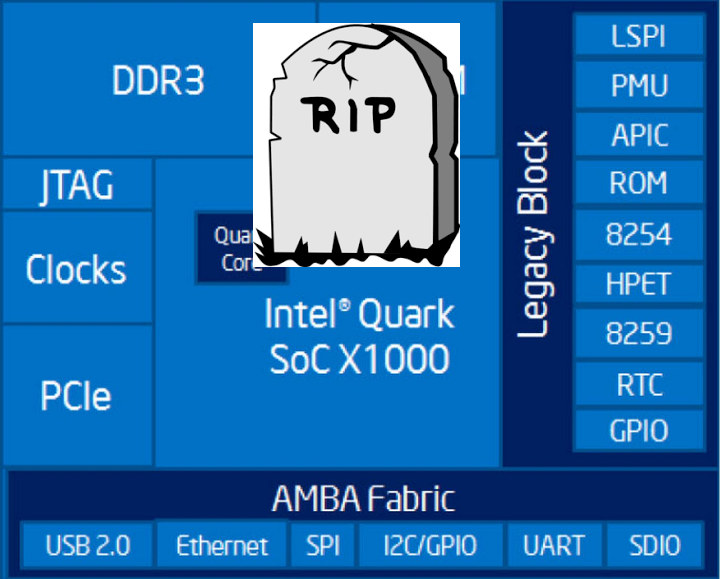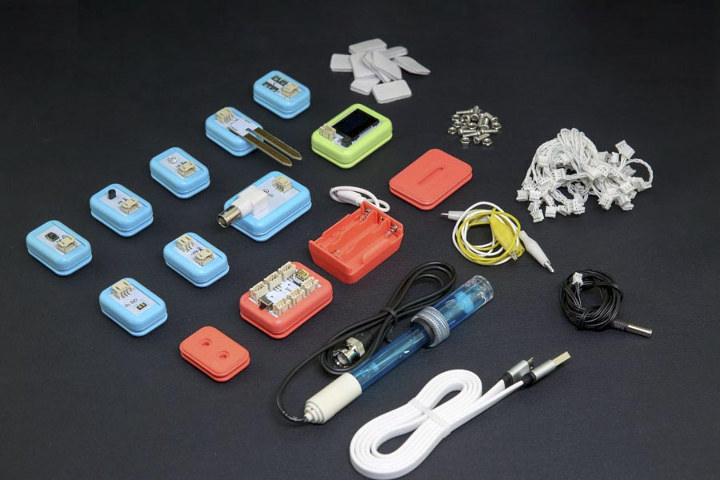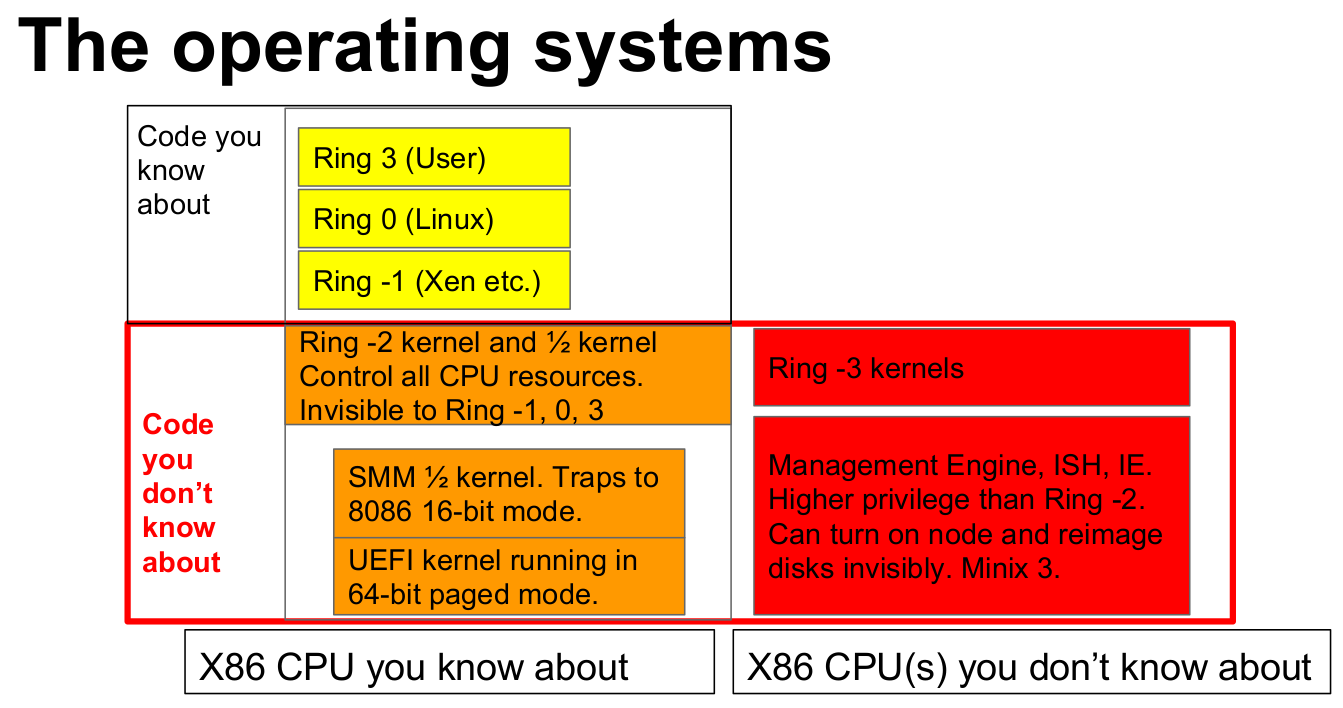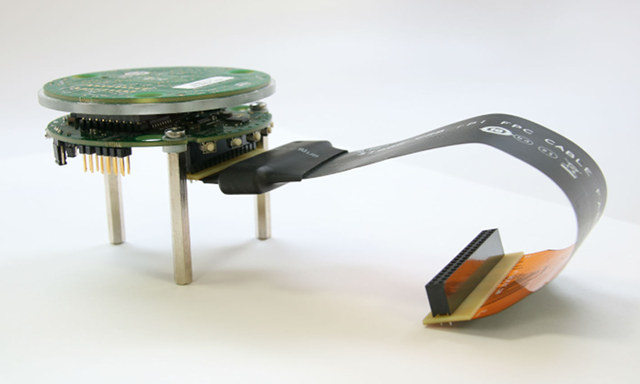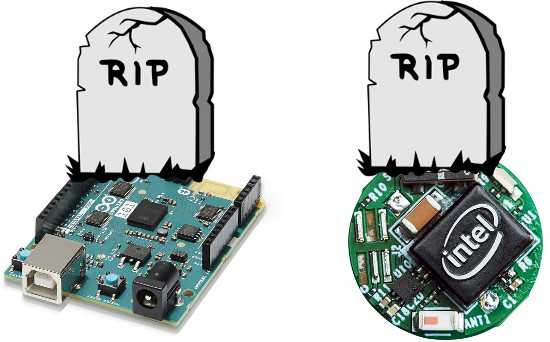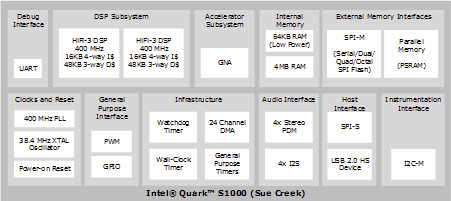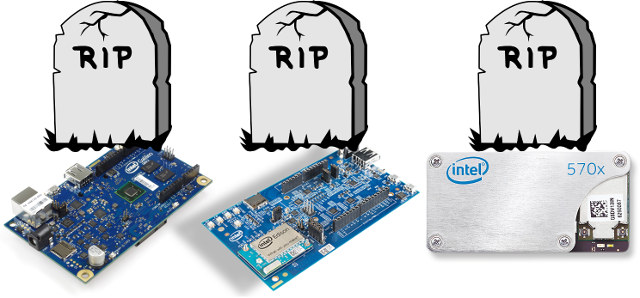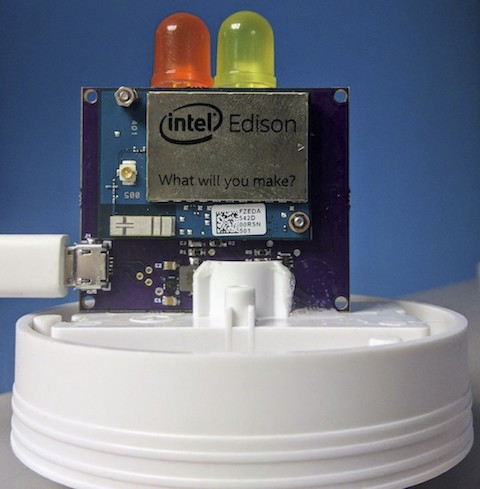I had completely forgotten about Intel Quark SoCs and MCUs found in development kits and modules such as the Arduino 101 board or Intel Curie module. Last time I heard about those chips, Intel had just discontinued several boards including the two aforementioned products, and I just assumed the Quark chips had quietly reached end-of-life as well. But actually those will still be available for a bit longer, with Intel having just issued a product change notification for the discontinuance & end of life of the following parts: Intel Quark SoC X1020D Intel Quark SoC X1000 Intel Quark SoC X1010 Intel Quark SoC X1021D Intel Quark SoC X1001 Intel Quark SoC X1011 Intel Quark SoC X1020 Intel Quark SoC X1021 Intel Quark Microcontroller D1000 Intel Quark Microcontroller D2000 Intel Quark SE C1000 Microcontroller Intel Quark Microcontroller D2000 Intel Quark SE C1000 Microcontroller In case you have a product based one […]
BOSON Kits Feature LEGO Compatible Building Blocks for STEM Education
Last year, DFRobot successfully introduced BOSON Kit “Powerful Building Blocks For LEGO STEM”via Kickstarter, and I’ve just noticed the company is now selling two BOSON Kits on their website: BOSON Science Kit for $149 BOSON Inventor Kit for $249 The kits are plug and pay and do not require coding, nor soldering. The modules come with built-in magnets, or they can be attached with screws, Velcro or to LEGO parts. BOSON modules are based on Intel Curie BLE modules, but those are being phased out, so you may want to inquire DFRobot if long term availability / appropriate stock is a concern. BOSON Science Kit As its name gives away, the kit is a set of exploration tool for aspiring young scientist with the following items: 8 scientific sensors for physics, chemistry and biology: Light sensor Humidity sensor Soil moisture sensor Temperature sensor Waterproof temperature sensor pH sensor (That’s the […]
MINIX based Intel Management Engine Firmware & UEFI are Closed Source & Insecure, NERF to the Rescue!
You may have heard a few things about Intel Management Engine in recent months, especially as security issues have been found, the firmware is not easily upgradeable, and the EFF deemed it a security hazard asking Intel for ways to disable it. In recent days, I’ve seen several media reports about the Management Engine being based on an Intel Quark x86-based 32-bit CPU running MINIX open-source operating system. Keep in mind, there’s nothing nefarious about MINIX, it’s just that Intel keeps its own developments on top closed. One of sources for the information is a blog post explaining how to disable Intel ME 11, but ZDNET also points to one of the talks at the Embedded Linux Conference Europe 2017 entitled “Replace Your Exploit-Ridden Firmware with Linux” by Ronald Minnich, Google which explains the problem, and proposes a solution to (almost) disable Intel’s ME, and replace UEFI by a small […]
Intel Speech Enabling Developer Kit Works with Alexa Voice Service, Raspberry Pi 3 Board
We’ve known Intel has been working on Quark S1000 “Sue Creek” processor for voice recognition for several months. S1000 SoC is based on two Tensilica LX6 with HiFi3 DSP, some speech recognition accelerators, and up to 8x microphones interfaces which allows it to perform speech recognition locally. The solution can also be hooked to an application processor via SPI, I2S and USB (optional) when cloud based voice recognition is needed. Intel has recently introduced their Speech Enabling Developer Kit working with Amazon Alexa Voice Service (AVS) featuring a “dual DSP with inference engine” – which must be Quark S1000 – and an 8-mic array. The kit also includes a 40-pin cable to connect to the Raspberry Pi 3 board. Intel only provided basic specifications for the kit: Intel’s dual DSP with inference engine Intel 8-mic circular array High-performance algorithms for acoustic echo cancellation, noise reduction, beamforming and custom wake word […]
Intel Curie Module, Arduino 101 Board Are Being Discontinued (Too)
Intel seems to have completely given up on its efforts to bring products specific to the Internet of Things. After discontinuing Intel Edison, Galileo and Joule boards & modules last month, forcing companies to look for alternatives, the company has now issued product discontinuance / end-of-life notices for Intel Curie Module and Arduino 101 board, itself based on the Curie module. The two product change notification notice can be found below for: Select Intel Curie Module Products – PDF Select Intel Arduino 101 Products – PDF The use of the word “Select” would normally mean some versions of the module and board won’t be affected, but I fail to see which ones here, as AFAIK there’s only one Arduino 101 board, and two variants of Curie modules, all three to be discontinued. Arduino 101 will be phased out faster with the following milestones: July 17, 2017 – Product Discontinuance Program […]
Intel Quark S1000 “Sue Creek” Processor to Support On-Chip Speech Recognition
Intel may have announced plans to discontinue several of their IoT boards, but based on some documents I received, the company has not given up on the Quark family, although they may have given up on the Intel architecture for low power microprocessor, as Intel Quark S1000 – codenamed “Sue Creek” – will feature two Tensilica LX6 cores (yes, just like ESP32), and is designed to handle speech recognition at the edge (e.g. locally), so some of your voice commands should still work when Internet is down. Intel Quark S1000 key features and specifications: Digital Signal Processors Dual Tensilica LX6 cores @ 400 MHz with HiFi3 DSP Single precision scalar floating-point instructions 16KB 4-way I$; 48KB 4-way D$ Up to 2400 DMIPS, 3.2 GMACS (16×16), 800 MFLOPS of Compute Speech Accelerators A GMM (Gaussian Mixture Model) and neural network accelerator Low power keyboard and limited vocabulary recognition Up to 9.6 […]
Intel Issues End-of-Life Notices for Galileo / Galileo 2, Edison and Joule Boards & Modules
While I’m not sure many of my readers are using them, Intel introduced several IoT development kits and modules over the years, with products like Intel Galileo, followed by Galileo 2, Edison module development board all based on Quark processors, and more recently Intel Joule modules powered by Intel Atom T550x / T570x processors. The three boards / modules and corresponding modules will soon be no more, as Intel issues three end-of-life (EOL) notices for: Intel Galileo Board, and Intel Galileo Gen2 Board Products – PDF Select Intel Edison Compute Module, Intel Edison Breakout Board, Intel Edison Kit for Arduino, and Intel Edison Breakout Board Kit Products – PDF Intel Joule 570x Compute Module, Intel Joule 550x Compute Module, Intel Joule 570x Developer Kit and, Intel Joule 550x Developer Kit Products – PDF All three follow the same “forecasted key milestones”: June 16, 2017 – Product Discontinuance Program Support Begins […]
Visualizing Electronics Manufacturing Price Variation with Volume and Lead Time
Google Android Things developers announced a production hardware sample based on Intel Edison module: Android Things is focused on helping developers build production ready devices that they can bring to market. This means building custom hardware in addition to the app software running on the Android Things system-on-module (SoM). As a part of this effort we have released Edison Candle, the first in a series of production samples designed to showcase hardware and software designed to work together. The code is hosted on GitHub and the hardware design files are on CircuitHub. That’s what the Edison Candle looks like. It’s just demo hardware to show how to build a product with a system-on-module (Intel Edison) for Android Things with everything released in Github. You can also purchase the board on CircuitHub, but then I saw the price was around $356 for such a simple board (without Edison). That’s quite a […]


